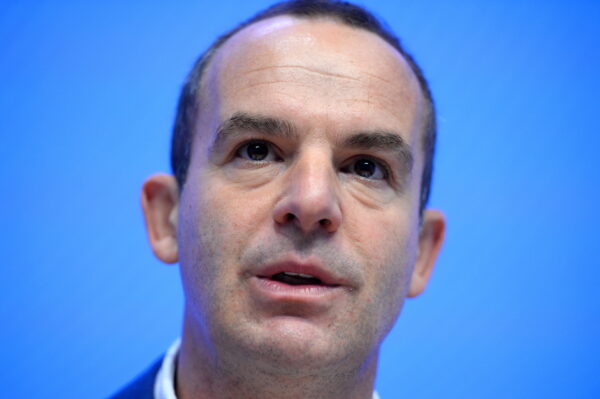New strategy will also see 400 investigators join the UK’s new National Fraud Squad
Text and online scammers will be targeted by a new government-backed fraud squad made up of 400 elite investigators.
The intelligence-led division will be part of a £30 million fightback against scammers that aims to block fraudulent communications at their source and allow suspect bank payments to be delayed.
The new fraud strategy, announced by Home Secretary Suella Braverman on Wednesday, will include banning cold calls on all financial products, such as those relating to insurance or sham cryptocurrency schemes.
It also plans to work with Ofcom to use new technology to further clamp down on number “spoofing,” so fraudsters cannot impersonate legitimate UK phone numbers.
So-called “sim farms”—used by scammers to send out mass text scams—are also in the government’s crosshairs with plans to ban devices and methods harnessed by fraudsters.
Banks will also be allowed to delay payments from being processed for longer to allow for suspect payments to be investigated under the new plans.
A new system will also replace Action Fraud—the UK’s national fraud reporting centre—and provide a “simpler route” for reporting fraud online, according to the government.
Victims will be able to report crimes through an online portal that will provide updates and progress on their case.
The Home Office said the improved service will ensure victims’ reports are acted upon more effectively.
Anti-Fraud Champion
Welcoming the plans, Prime Minister Rishi Sunak said the government is taking the fight against fraud to scammers.
“Scammers ruin lives in seconds, deceiving people in the most despicable ways in order to line their pockets,” he said.
“We will take the fight to these fraudsters, wherever they try to hide.
“By blocking scams at the source, boosting protections for people and bolstering enforcement, we will stop more of these cold-hearted crimes from happening in the first place and make sure justice is done.”
The Home Office said that while law enforcement is devolved, measures agreed with industry will have a UK-wide benefit.
It said it will continue to ensure that collective issues are addressed collaboratively to maintain the UK’s resilience against fraud.
Braverman said it was “vital” to adopt a new approach to tackle criminals defrauding the public.
“Fraud is a blight on our country with ruthless criminals scamming the British public out of their hard-earned cash,” she said.
“They exploit people’s trust and steal their life savings, shattering their confidence and leaving them feeling vulnerable. It also fuels serious organised crime and terrorism.
“Meanwhile scammers are adapting, taking advantage of new technology to prey on more victims.
“It is vital we adopt a new approach to this threat.”
Braverman said the fraud strategy will allow government, law enforcement, industry, and international partners to track down criminals, intercept their scams, and bring them to justice.
A new anti-fraud champion, Anthony Browne MP, has also been appointed.
Browne said the tech sector, phone companies, and financial services firms “must take responsibility for protecting their users” by stopping fraud happening in the first place, and work together to “design out” fraud.

Crackdown Criticism
However the newly announced strategy has been described as “too little, too late” by opposition politicians.
Shadow home secretary Yvette Cooper said the crackdown “fails to match the scale of the problem.”
“All the home secretary has delivered is a rebadging of existing national teams, and a re-announcement on the replacement of Action Fraud from almost two years ago,” she said on Wednesday.
Labour’s Emily Thornberry also hit out at the government plans.
The shadow attorney general said: “This has been billed as a fully-integrated blueprint to tackle the entirety of Britain’s fraud crisis, yet it ignores the tens of billions being lost to fraud against businesses and the government, and relies on estimates of the cost of fraud to members of the public that are seven years out of date.”
The government also said it is working with tech companies to make it as simple as possible to report fraud online, whether it be scam adverts or bogus “celebrity endorsements.”
In 2021, the National Cyber Security Centre removed more than 730,000 websites running celebrity scams.
Among those most used in bogus ads was Sir Richard Branson and consumer champion Martin Lewis.
Lewis, founder of MoneySavingExpert, described the measures as “a good first step in the right direction.”
He added: “They should improve prevention and prosecution, but it will be slow going.
“Ultimately this is all about putting enough resources in to build a dam to stop the flood. I hope we will see that happen.”
Welcoming the government’s multi-million pound strategy, Graeme Biggar, director general of the National Crime Agency, said: “We want fraudsters to feel the same vulnerability they inflict upon their victims, as we target their infrastructure, expose their identities, and bring them to justice.”
City of London Police Commissioner Angela McLaren said she hoped the collective effort would mean better pursuing of fraudsters to “reduce the devastating harm they cause.”
Which? Director of Policy and Advocacy Rocio Concha said consumers will judge the success of this strategy by whether they end up with better fraud detection, prevention, support, and redress.

Fraud Mastermind
Last year, UK police announced they had helped smash an international fraud operation that had scammed more than 200,000 people.
The website iSpoof enabled criminals to mimic bank telephone numbers and caller IDs, allowing scammers to trick victims out of thousands, and in some cases, millions of pounds.
The Metropolitan Police said victims lost tens of millions of pounds and those running iSpoof made £3.2 million ($3.88 million) over 20 months.
Last month, the man believed to be iSpoof’s mastermind pleaded guilty to the Metropolitan Police’s largest-ever fraud investigation.
Tejay Fletcher, of Western Gateway, London, appeared at Southwark Crown Court where he admitted to charges of making or supplying articles for use in fraud; encouraging or assisting the commission of an offence; possessing criminal property and transferring criminal property.
He pleaded not guilty to a further three offences which the judge ordered to lie on file.
Fletcher played the leading role as the website administrator for the majority of time iSpoof was operating and received by far the largest share of the profits, making at least £1.3 million.
The Crown Prosecution Service (CPS) intends to use confiscation proceedings to prevent him from profiting from his crimes.
Speaking at the time, CPS specialist prosecutor Thomas Short said: “As the leading administrator of the iSpoof website, Tejay Fletcher helped to provide fraudsters with the tools to cheat innocent people on a shocking scale.
“Fraud is an insidious crime and the cost to the many victims in this case has not just been financial, it has also caused huge emotional distress and devastation.
“We want to encourage all those who think they’ve been a victim of a fraud to come forward and report it.
“The CPS works closely with police to bring fraudulent offenders like Fletcher to justice and I hope today’s conviction sends a strong message to criminals that they can no longer hide behind online anonymity.”
Fletcher is due to be sentenced later this month.
PA Media contributed to this report.








